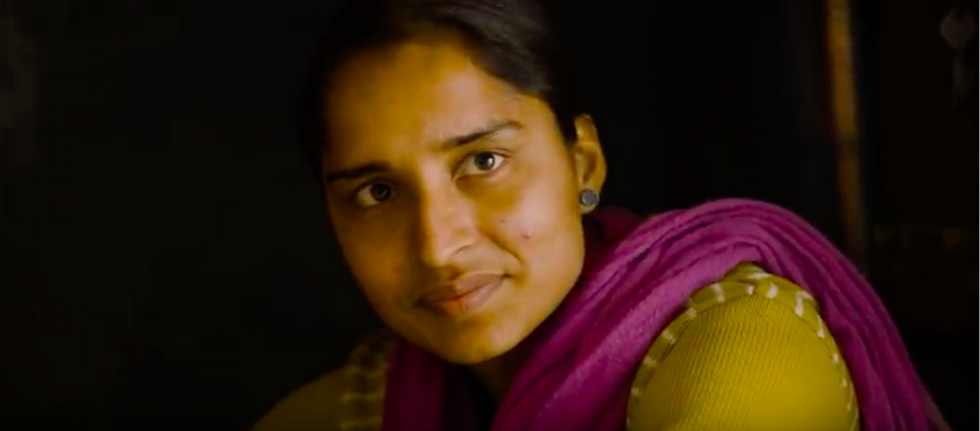The most unexpected part of this year's Academy Awards did not come when "The Green Book" won best picture. Nor did it occur when Glenn Close got snubbed for best actress (for the fourth time).
Indeed, the most unexpected Oscars moment came when "Period. End of Sentence.," a film about menstruation, won the award for Best Documentary Short Subject.
The documentary, directed by Rayka Zehtabchi and featured on Netflix, exposes the lack of knowledge surrounding menstruation in an Indian village and one group's crusade to produce and sell pads, an elusive item in this area.
Set in the Hapur District, a village about 37 miles outside of New Delhi, the film opens on a series of interviews in which Indian women and men are asked how much they know about periods. Most of the girls are embarrassed to talk about it, shrugging their shoulders and trying not to laugh. When asked why periods occur, one older woman states that "only God knows." The men seem to think that periods are a kind of illness.
These short clips, collected from just a few of the one billion people living in India, illustrate the ever-present taboo that is menstruation in rural India. It keeps women from pursuing higher education, worshipping in temples, and achieving the same status as men. These archaic attitudes towards periods help explain why women are still treated as second-class citizens in some parts of India, even as their counterparts elsewhere become presidents and CEOs and, in this case, Oscar winners.
But a group of women in the Hapur District are trying to end the period stigma. With the support of The Pad Project, an organization that funds the installation of "pad machines" in underprivileged areas worldwide, these women have created a business around manufacturing affordable, quality pads and selling them to local women who need them most.
According to the documentary, this group, led by a fiercely independent young woman named Sneba, goes door-to-door and shop-to-shop selling the pads, which they've named "Fly." In places where taboos make it difficult for women to buy sanitary napkins, the pads help destigmatize menstruation and give female workers financial independence.
In covering this group of women and their quest for menstrual equality, "Period. End of Sentence." proves that having access to safe, affordable sanitary napkins transcends the physical benefits, showing women that they can be more -- they can stay in school, work the same jobs as men, and finally understand their worth. To those of us who don't have to stop our lives when our periods come, who can rely on an endless supply of sanitary napkins and not feel shameful for buying them, it seems strange that a pad could hold so much power. And yet, one small pad machine in the Hapur District has changed countless lives.
To donate to The Pad Project, visit https://donorbox.org/the-pad-project.












